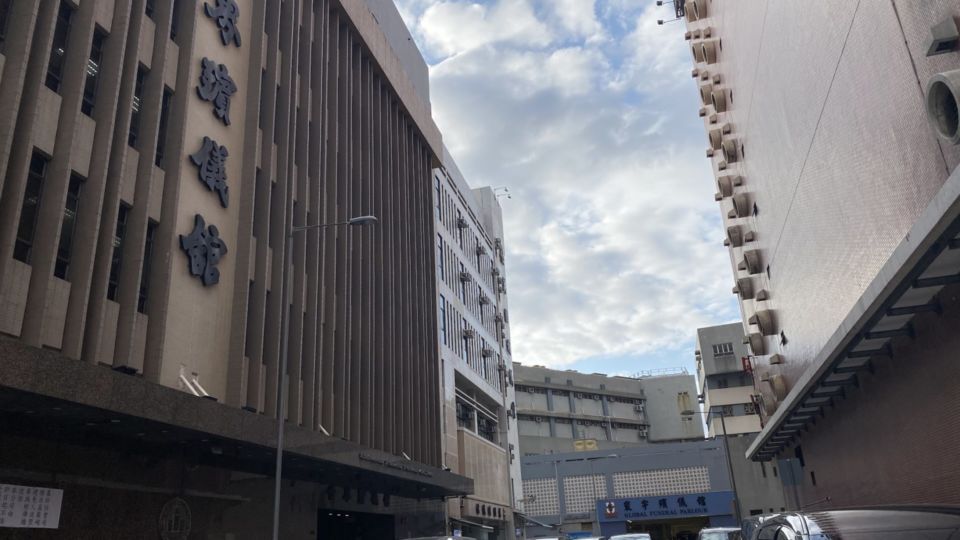It was a photo that shocked the city.
Three elderly people were lying in bed on a packed public hospital ward.
What surrounded them, however, were not other patients, but six bodies in bags on stretchers.
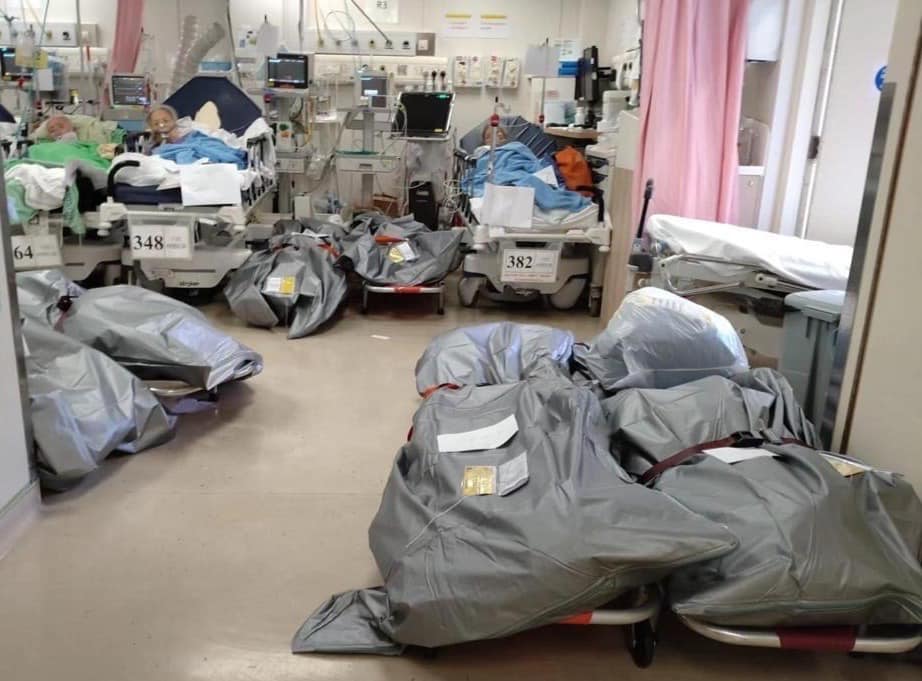
The image has since been circulating on social media, causing distress and anger among netizens.
It has also become a poignant reminder of the thousands of lives lost to COVID-19 in the current Omicron wave in Hong Kong, and how the city is woefully unprepared not only for the care of the living, but also those who have passed.
Disrespectful handling of the deceased
The Hospital Authority has since confirmed that the photo was taken at one of the public hospitals and apologized for the distress caused to the patients.
It explained that the image was shot earlier, adding the situation of bodies piling up in hospital wards has mostly eased through different measures.
To deal with the onslaught of bodies pouring out of hospitals, authorities have implemented a slew of measures, including using mobile refrigeration units to store bodies and extending the service hours of crematoria.
But some in the business say the situation is still dire, with the problem just pushed downstream.
Two sources familiar with the functioning of mortuaries in Hong Kong say some public mortuaries and hospital morgues have been storing two bodies of the same sex in one compartment — separated only by body bags.
“This is ridiculous,” says one source.
“In Chinese culture, it is most important to respect the deceased and the body. But you’re telling me that because of the government’s poor handling, two bodies have to be put together in the same compartment with the feet of one body poking at the other’s head? How is this different from a mass grave?”
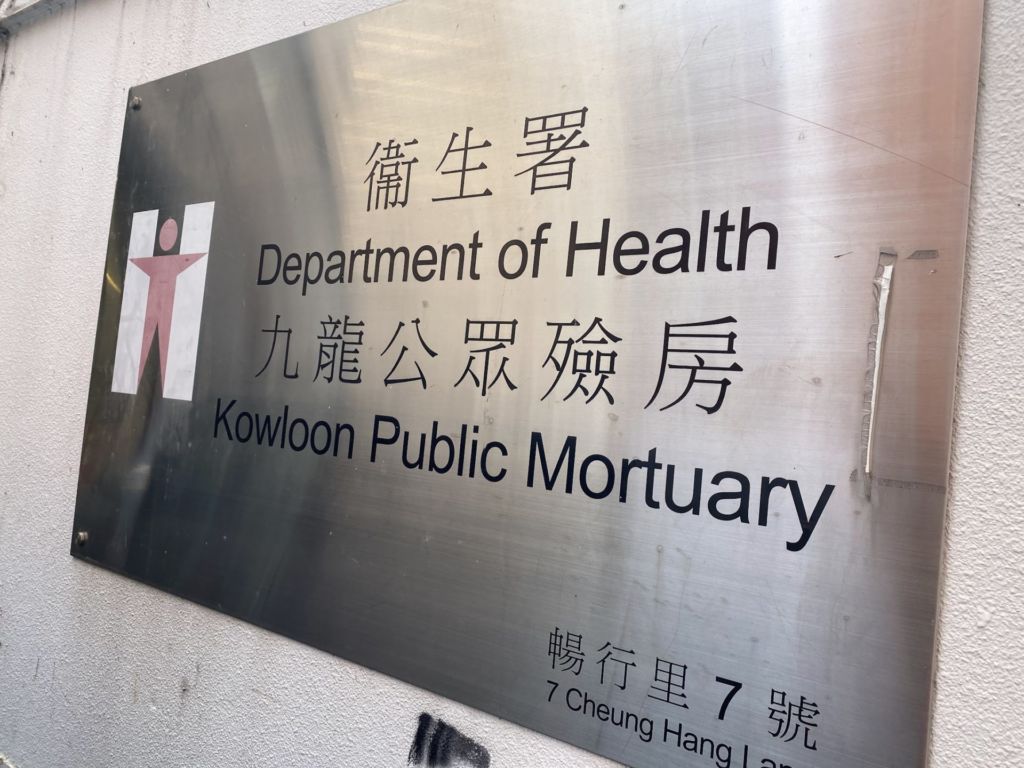
Some in the funeral sector slam the government for not implementing targeted measures.
The Food and Environmental Hygiene Department has doubled sessions at its crematoria to around 280 a day for “the funeral business and bereaved families of the deceased to handle after-death arrangements as early as possible”, but Kyra Yuen from Shing Tak Funeral points out that there are still slots not taken every day.

She says the problem is that the move to increase cremation sessions only targets the downstream segment of the funerary process without addressing other pressing issues faced by families and the funeral business.
“Every link is closely connected in the funerary process,” says Yuen. “It does not matter how many cremation sessions you increase if you can’t solve the other issues earlier in the process.”
These include difficulties in booking funeral halls, as well as arranging funeral vans and staff who are trained to handle bodies.
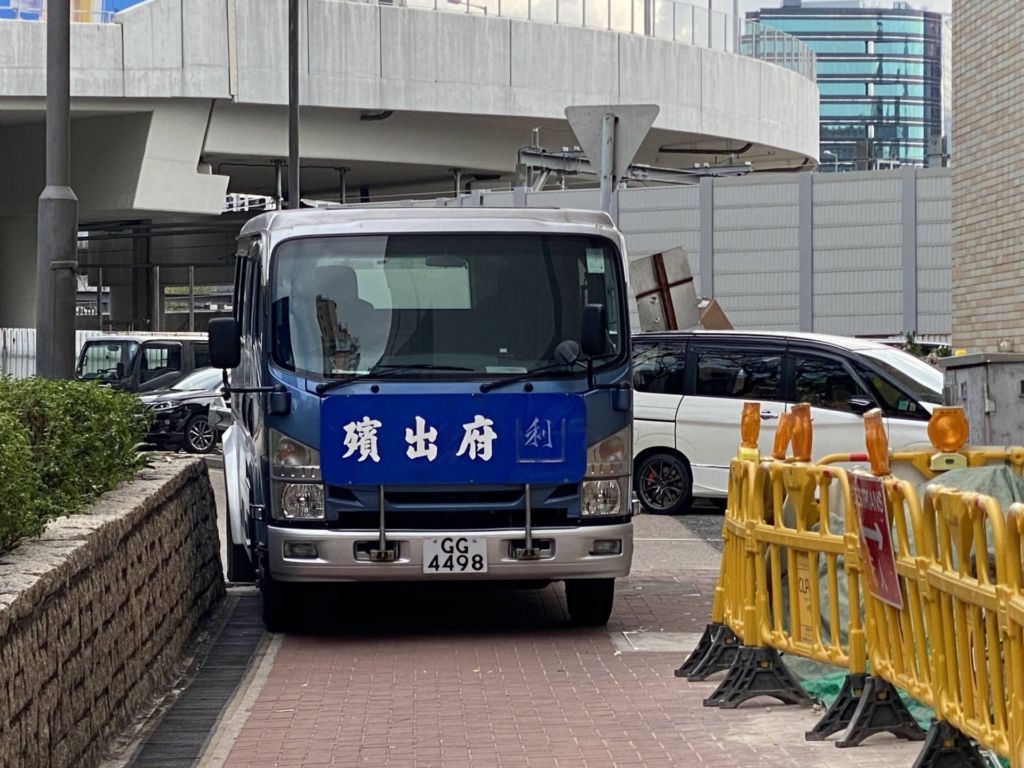
There are only 121 funeral halls in Hong Kong. While some may opt for a simpler ceremony for the deceased in hospitals, the number is still very insufficient for a city facing around 200 deaths a day of COVID-19 patients alone.
Furthermore, Yuen says there is a backlog of funeral cases to be handled from the Lunar New Year period.
She explains that even without the coronavirus, there is a higher number of deaths around this period each year due to the change of weather. Families are also generally unwilling to conduct funeral rites during the festive season because of the higher costs and many feeling it is inauspicious to do so, she adds.
Compounded by the fact that many working in the funeral business too have caught COVID-19 this year and cannot go to work, Yuen says many of her clients have had to push back the ceremonies.
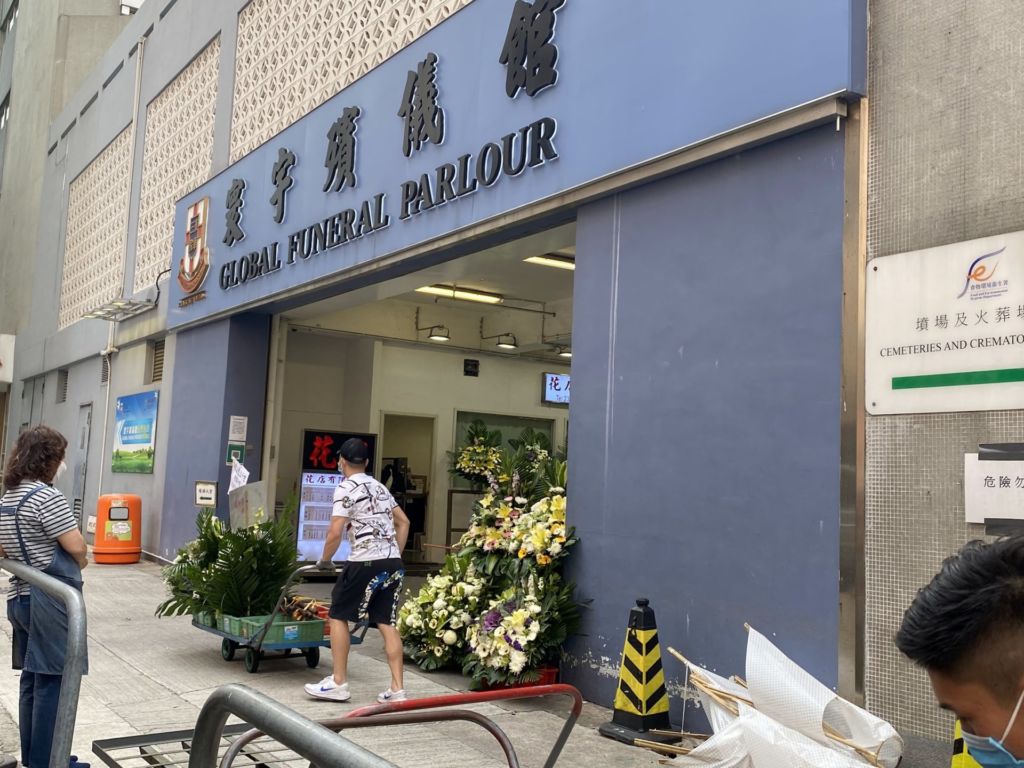
Difficult decision
People in the industry have said that funeral homes are fully booked till mid-April.
Giovanni Pang, a funeral consultant at Leung Chun Woon Kee, says at least 13 of their clients who initially wanted to have a ceremony in funeral homes have opted to skip the rites altogether and have the deceased’s bodies cremated quickly due to the current situation. They include those who died with or without COVID-19.
For families, it is a difficult decision to make.
Many families do not want to skip the ceremony, especially when it is the wish of the deceased. But waiting longer means the bodies of their loved ones could be stored in less desirable conditions in public facilities — such as sharing a compartment with another body — as not everyone can afford renting a space in private morgues.
Pang says that because of coronavirus outbreaks at funeral homes, some of his clients also had their bookings at funeral halls cancelled.
He adds many of his clients have been disappointed at not being able to carry out the rites.
“For many, such funeral rites are important as they are the last thing the living can do for the deceased,” he says.
“It is also an avenue for them to release their emotions and show their filial piety.”
Pang says that in the past, families could still do a simple ceremony at the hospital before transferring the body of the deceased to the crematorium, but since the fifth wave of the coronavirus in Hong Kong, many hospitals have been so busy they are not able to handle families’ request for time for funeral rites.
“So it is very important for us to spend more time to comfort them and alleviate their concerns,” says Pang, who used to work in churches and is trained in counselling.
“I will tell my clients that even if they cannot do a ceremony for the deceased today, it does not mean that they cannot use other means to commemorate their loved one in the future.”
Meanwhile, Yuen calls on authorities to issue one or two more licenses for funeral homes to alleviate the long-standing shortage of such facilities.
In the longer term, she says the government needs to have better planning for after-death in Hong Kong, such as putting facilities — like morgues, funeral homes and crematoria — in clusters, so the process can be more time-saving and more cases can be handled in a day.
Responding to queries from Coconuts, a Department of Health spokesman says it will speed up the expansion of the Fu Shan Public Mortuary, which will provide 800 additional spaces. The new wing is expected to open in phases next month.
He says the department has also streamlined processes so family members can claim the body of the deceased quicker.
The spokesman adds the department will continue to monitor the use of public mortuaries, pay attention to their storage capacity and continue to discuss emergency response measures with relevant government departments.
